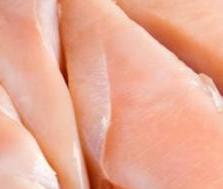French poultry farmers don’t want to be plucked

“Being a shield against inflation is good. Paying French products at fair prices is better!” It is under this slogan that French poultry farmers take action in supermarkets, including ‘stickering’ products, to demand a fair price.
When Michel-Edouard Leclerc, owner of one of the largest supermarket chains in France, accused them of seeking price increases, poultry farmers felt obliged to take action.
They do not want to oppose consumer and producer. All they want is to be “paid a fair price.”
The poultry farmers protest against the developments in recent weeks and the French Confederation of Aviculture (CFA) has send out an alert on the pricing situation of all products ranging from poultry and rabbits, to eggs, waterfowl and ‘foie gras’.
Today, the rising prices of animal feed like other production costs related to energy, environment and animal welfare, can not only be supported by producers and processors anymore, CFA said.
In an interview with Le Monde, Michel-Edouard Leclerc is a defender of consumers and their purchasing power and reprimands its suppliers to “hide behind the soaring commodity prices and come to ask outrageously price increases.”
“French trade has nothing to gain by irritating producers and consumers. Such statements are more of a cliché than a serious analysis of the economic situation of agricultural production and particularly that of poultry,” ACF said in a statement.
“Is Leclerc looking for consumer protection or trying to keep his margins? Poultry producers are unable to generate sufficient income to enable them to enhance and renew their livestock facilities. Rabbit farmers are in a deep crisis for 3 years now.”
The producers are only asking for a compensation for the increases in production costs and not increase their profit margins, but retailers refuse to understand that the sustainability of French poultry and rabbit production is at stake.
ACF ends with saying: “So Mr. Leclerc instead of abomination isn’t it time to establish a genuine dialogue with an open mind to find solutions to erratic and dramatic developments of agricultural markets?”













